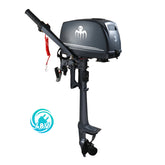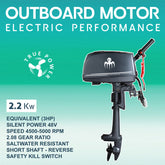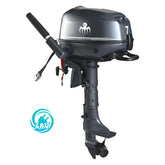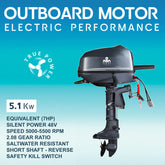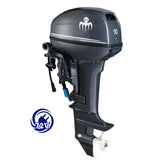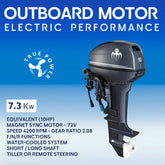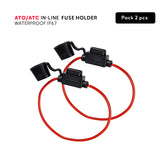Understanding the Application of ANL Fuses in Marine Systems
Boat Electrical Protection: The Role of ANL Fuses
ANL fuses are very popular in the marine world for their robustness. They are also often found in trucks and RVs. They have become the standard for high-power electrical installations. A good fuse is your first line of defense, protecting your costly equipment and ensuring your safety at sea.

ANL Fuses: Why Are They Essential?
Boats require reliable electrical protection. Here are the main uses for ANL fuses: Battery protection: These DC fuses are installed directly on marine batteries. They prevent short circuits and overcurrents from cutting power and damaging your vessel. Power distribution networks: Fuse blocks with ANL fuses protect your boat's circuits to ensure each system operates safely. Inverters and chargers: High-power inverters and chargers require solid protection. ANL fuses prevent overloads that could damage these expensive systems. Electric motors and accessories: ANL fuses also protect electric motors, thrusters, and accessories like bilge pumps and lights.
Essential Marine Applications of ANL Fuses
Marine environments demand reliable protection for electrical systems. Here are the areas where ANL fuses excel on board:
Battery System Protection
These DC fuses integrate directly into marine battery banks, preventing damage from electrical faults and overcurrents that could immobilize the vessel.
Power Distribution Networks
Fuse blocks equipped with ANL fuses protect each electrical circuit on the boat, ensuring safe operation for every system.
Inverter and Charger Circuits
High-power inverters and charge controllers require robust protection. ANL fuses secure these critical systems against overloads.
Electric Motor Systems
Electric propulsion motors and bow thrusters use ANL fuses to protect high-current circuits and control systems from electrical damage.
Navigation and Communication Equipment
Marine electronic equipment needs a stable power supply. ANL fuses protect radar, GPS, and radio from power surges.
Auxiliary Equipment
Lighting systems, bilge pumps, windlasses, and other on-board accessories benefit from ANL fuse protection in their electrical circuits.
How to Choose and Replace an ANL Fuse
Choosing the right rating To choose the right fuse, you need to know your device's maximum power consumption (like an inverter). The fuse should have a slightly higher rating. A good rule of thumb is to choose a rating 1.25 times higher than the device's amperage. For example, for 100 amps, a 125-amp ANL fuse is a good choice. Replacement procedure To ensure your safety, follow these steps:
⚠️ Safety First: Before touching the electrical system, always turn off the power and disconnect the negative terminal of your battery.
- Select the correct rating: Never use a fuse with a higher amperage. This could cause a fire.
- Inspect and replace: Check if the metal strip inside the clear fuse holder is broken. If so, replace the old fuse with the new one.
- Test: Insert the new fuse firmly, reconnect the battery, and test if the system works.
The Role of Quality Materials
The quality of an ANL fuse is crucial. Gold-plated terminals, as on our fuses, are more resistant to corrosion, which is very important in marine environments. A good connection reduces voltage loss and heat buildup, making your electrical system more reliable.
Premium Gold-Plated ANL Fuses and Fuse Holders
Protect your boat's electricity with our ANL fuses and transparent fuse holders, designed to withstand the harshest marine conditions.
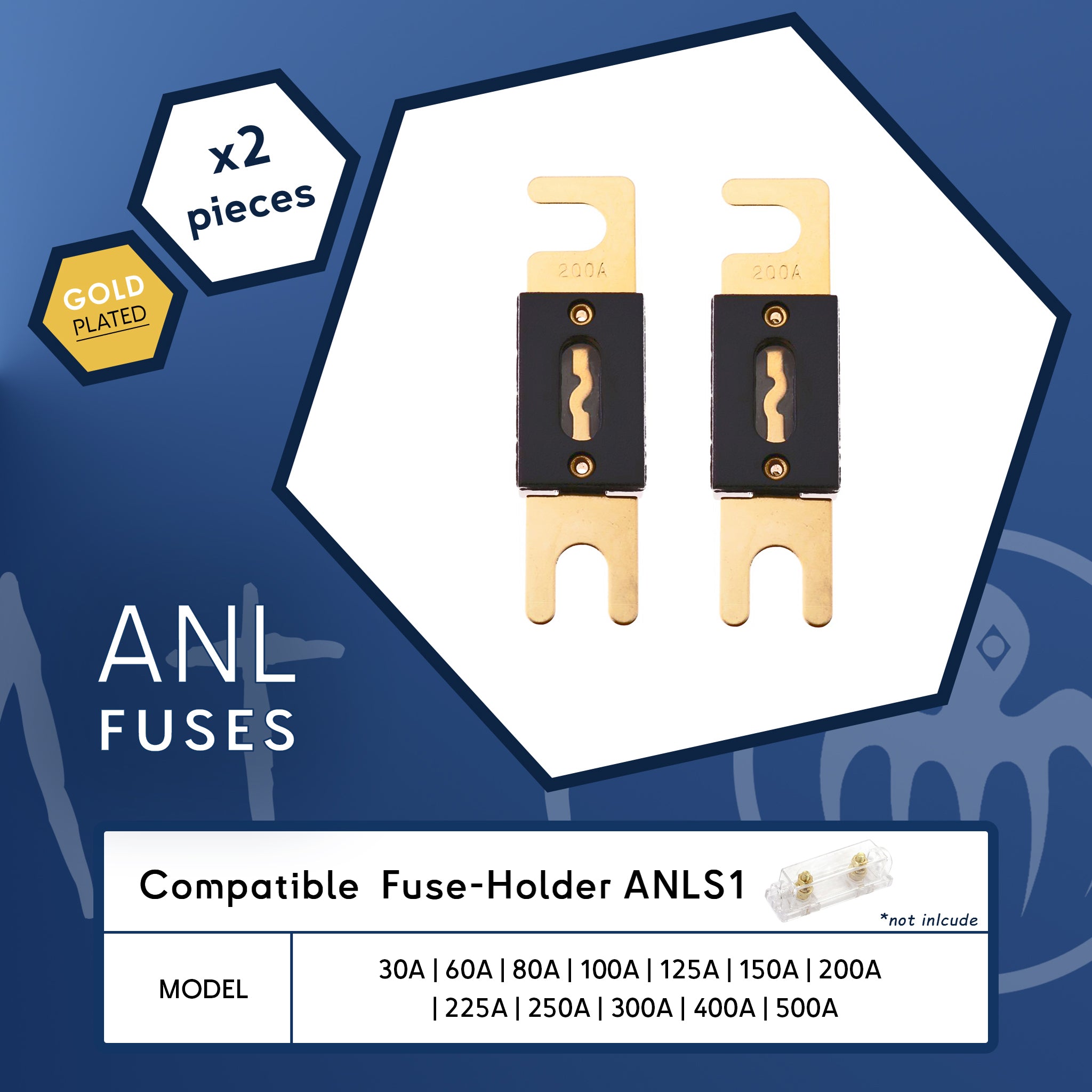
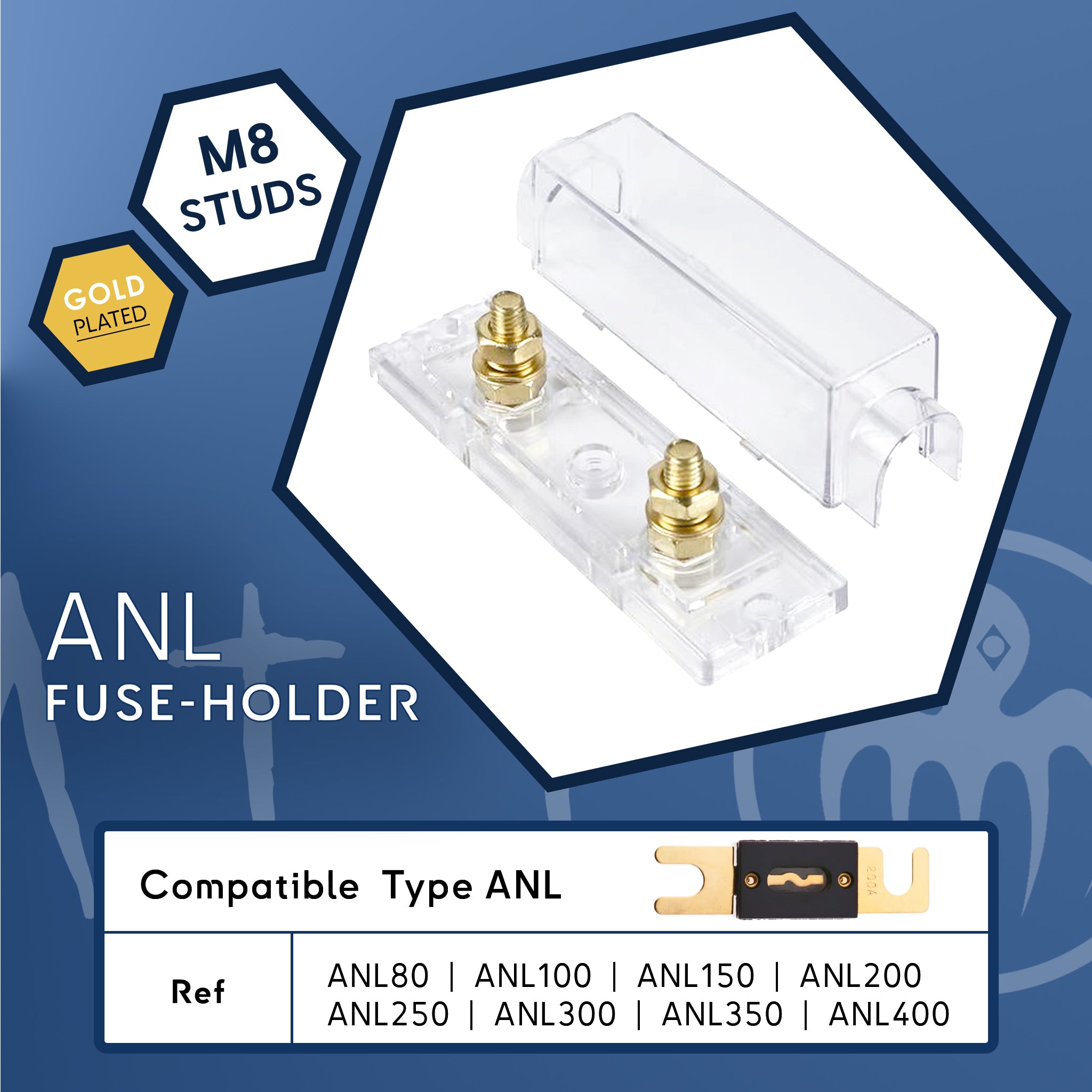
Frequently Asked Questions
What does "ANL" stand for? "ANL" is a classification that designates a specific fuse type and size. Can I use a more powerful fuse? No, it's very dangerous. The purpose of the fuse is to protect your circuits. A fuse that is too powerful will allow too much current to pass, which could cause a fire. Are ANL fuses waterproof? Fuse holders are often splash-resistant, but not designed to be submerged. For true waterproofing, a sealed fuse holder is required.
Note: Always read your boat's documentation. For high-voltage or high-power installations, seek professional help.
